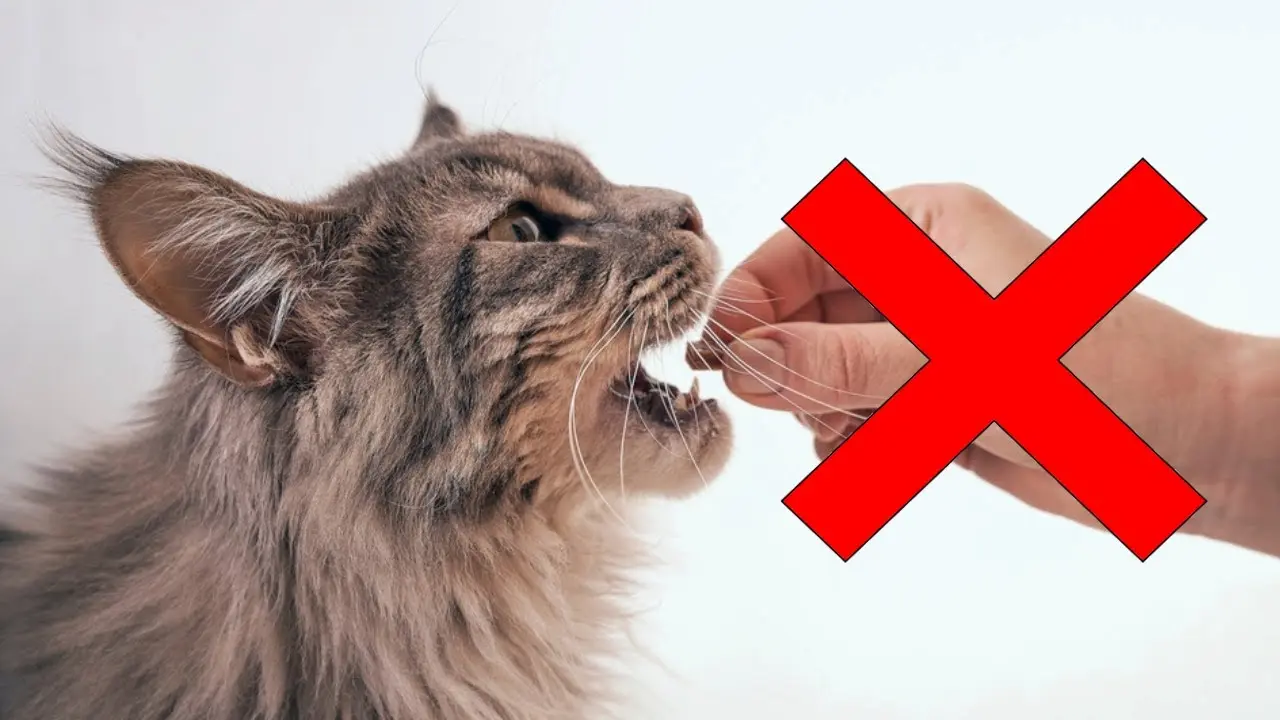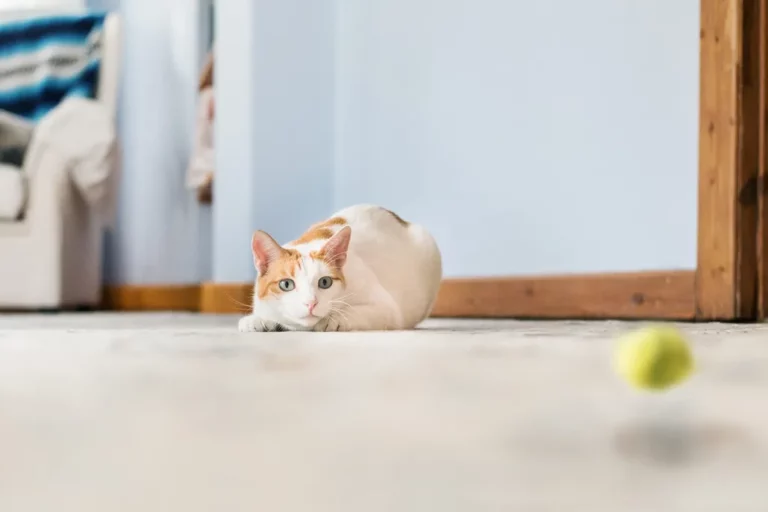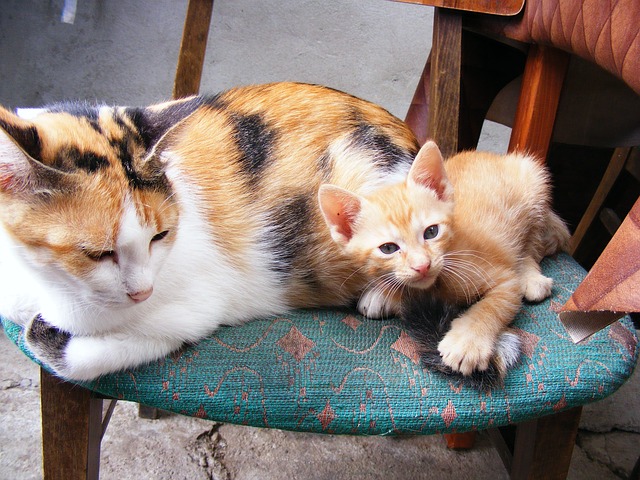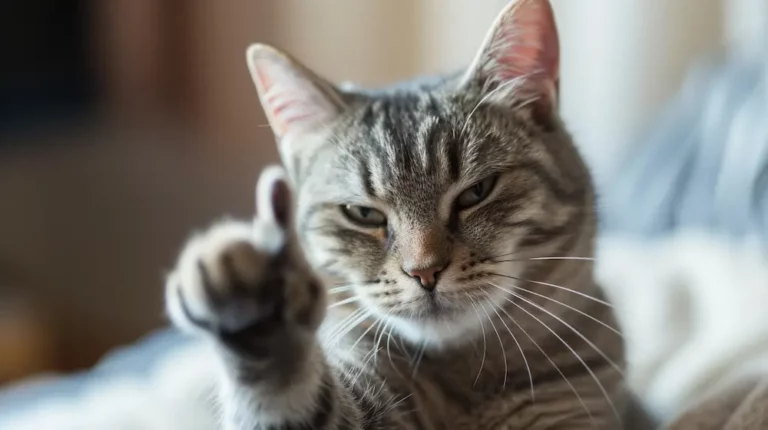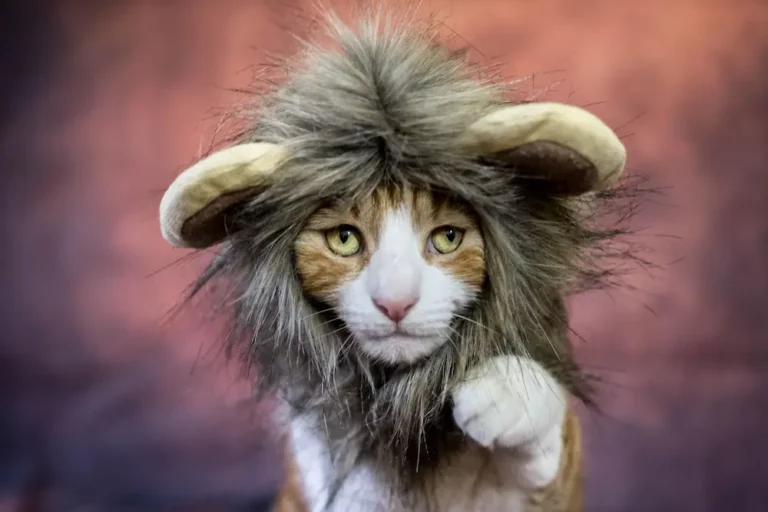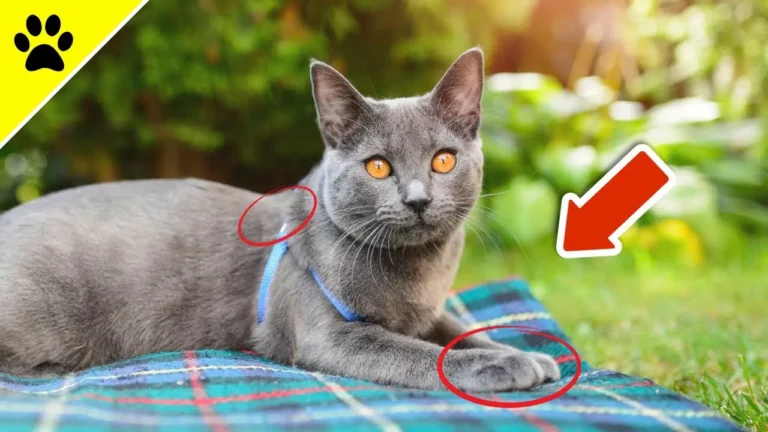14 Human Foods That Can KILL Your Cat
The diet of our
Grapes and raisins, for example, can lead to acute kidney failure, while chocolate contains theobromine and caffeine, both of which are toxic to cats.
Additionally, substances such as xylitol, found in many sugar-free products, and even everyday items like onions and garlic, pose significant health risks.
Understanding these dangers is imperative, but which other foods should you be cautious of to protect your
Grapes and Raisins
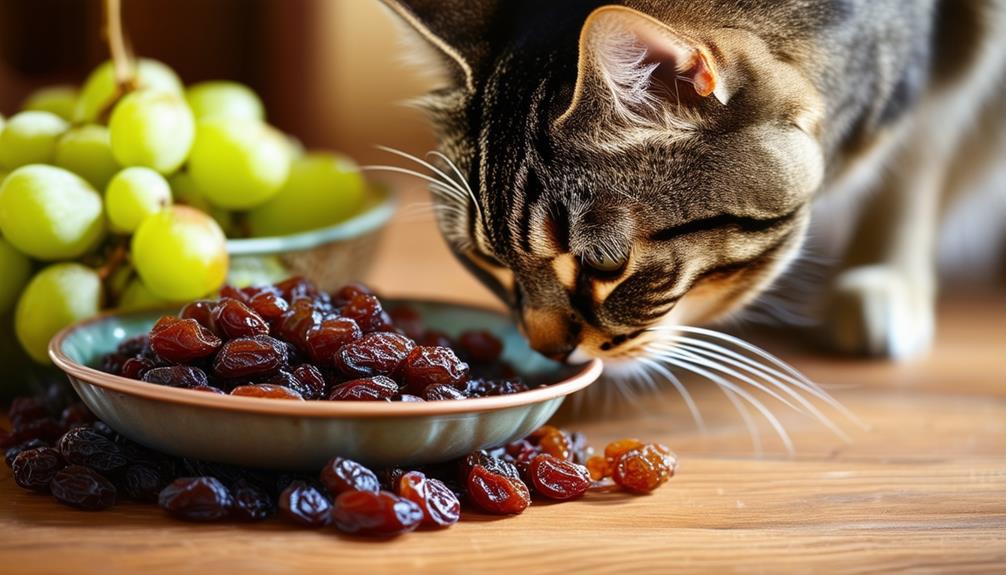
Among the many foods that pose a serious risk to
Even small amounts can lead to severe outcomes, including vomiting, lethargy, and decreased appetite.
The exact toxic compound in grapes and raisins remains unidentified, but the effects on
As a responsible
In fostering a safe environment, you’re ensuring a healthier, longer life for your beloved
Cooked Bones
Cooked bones present a significant threat to a
When chewed, these bones can break into sharp fragments that may puncture or lacerate the gastrointestinal tract, leading to severe pain, bleeding, and potentially fatal infections.
Unlike raw bones, which are more flexible, cooked bones become brittle and easily break apart. It is essential to keep all cooked bones out of your
Offering safer alternatives, such as specially designed
Always prioritize safety and consult your veterinarian for the best options for your pet.
Citrus Fruits
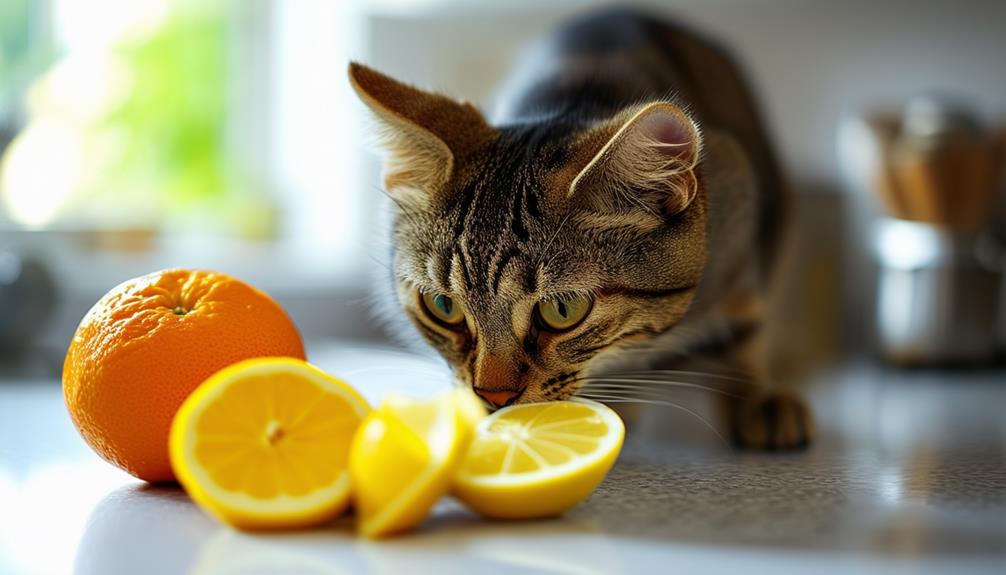
In addition to the dangers posed by cooked bones, citrus fruits can also be harmful to cats, potentially leading to central nervous system depression and other severe health issues.
The essential oils and psoralens found in citrus fruits such as oranges, lemons, and limes can cause symptoms ranging from stomach upset to more serious conditions like tremors and lethargy.
Even the aromatic scent of citrus oils can be distressing to your
Ingesting any part of these fruits, including the peel, seeds, and pulp, may result in vomiting, diarrhea, and an overall decline in their well-being.
To safeguard your
Chocolate
Why is chocolate so dangerous for cats?
Chocolate contains theobromine and caffeine, both of which are toxic to cats.
Unlike humans, cats metabolize these substances very slowly, leading to harmful effects even in small amounts.
Symptoms of chocolate poisoning in cats include vomiting, diarrhea, increased heart rate, and seizures. In severe cases, it can lead to death.
Dark chocolate and baking chocolate are particularly dangerous due to their higher theobromine content.
Even a small piece can pose a significant risk.
If you suspect your
Protect your
Bread Dough
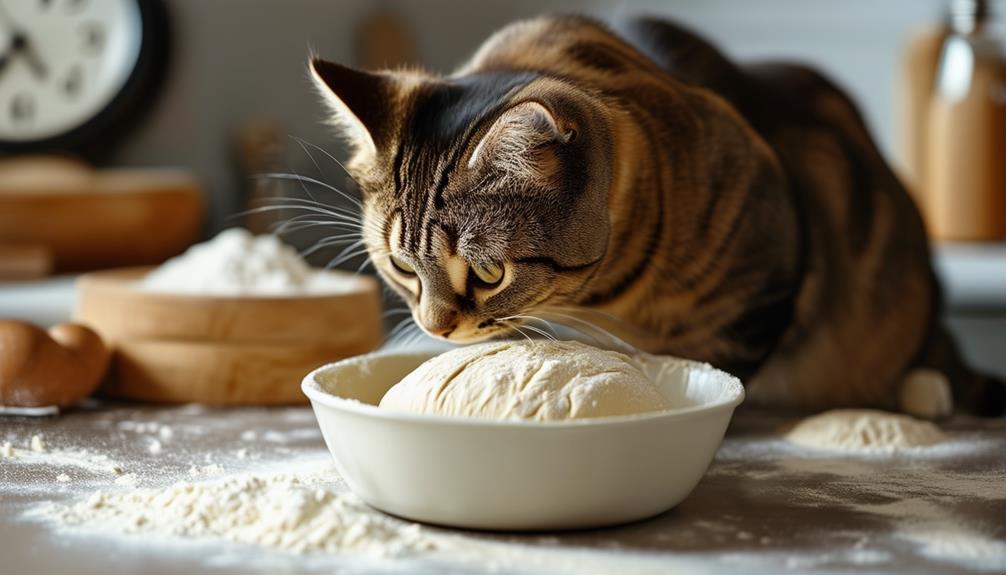
Consuming bread dough can be vital for cats due to the risks associated with yeast fermentation.
When a
This can lead to a dangerous accumulation of gas, causing severe bloating and potentially life-threatening gastric dilatation-volvulus (GDV), commonly known as a twisted stomach.
Additionally, the alcohol produced during fermentation can result in ethanol poisoning, manifesting as disorientation, vomiting, and respiratory distress.
If your
Understanding these risks empowers you to protect your
Coconut Milk
Coconut milk, though often perceived as an important alternative for cats, can lead to digestive issues in cats due to its high fat and oil content.
The fats in coconut milk are not easily metabolized by
Cats rely on a diet primarily composed of proteins and specific fats that align with their natural dietary needs. Introducing coconut milk disrupts this balance, causing potential harm rather than benefit.
While the idea of sharing your favorite plant-based milk with your
Always consult your veterinarian before introducing new foods.
Macadamia Nuts
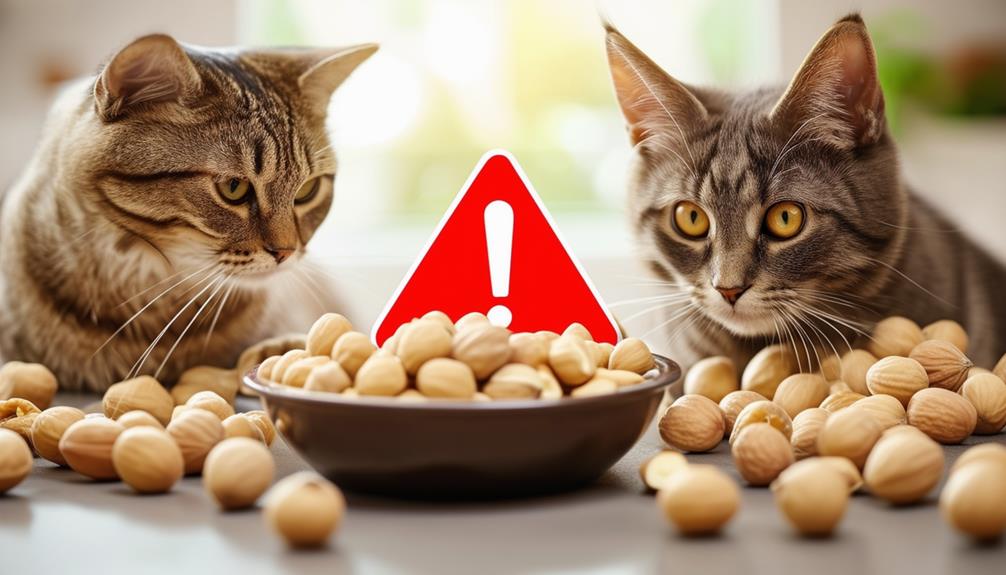
While coconut milk poses digestive risks for cats, macadamia nuts present an even more severe threat due to their potential to cause poisoning.
These nuts can induce a range of alarming symptoms, including lethargy, vomiting, tremors, and even hyperthermia.
The exact toxin in macadamia nuts remains unidentified, but its effects are well-documented and can be life-threatening. Ingestion of even a small number of these nuts can have serious repercussions on your
Hence, it is vital to keep macadamia nuts and foods containing them well out of your
If you suspect your
Coffee and Caffeine
Coffee and caffeine pose significant health risks to cats, mirroring the toxic effects of chocolate by potentially inducing vomiting, hyperactivity, elevated heart rate, and even seizures.
These stimulants can be found not only in coffee and tea but also in certain energy drinks and medications.
Even small amounts of caffeine can trigger severe reactions in cats due to their smaller body size and unique metabolism.
If a
Owners should be vigilant about keeping caffeinated products out of reach, ensuring that curious paws and inquisitive noses do not come into contact with these harmful substances.
Protecting our
Dairy Products
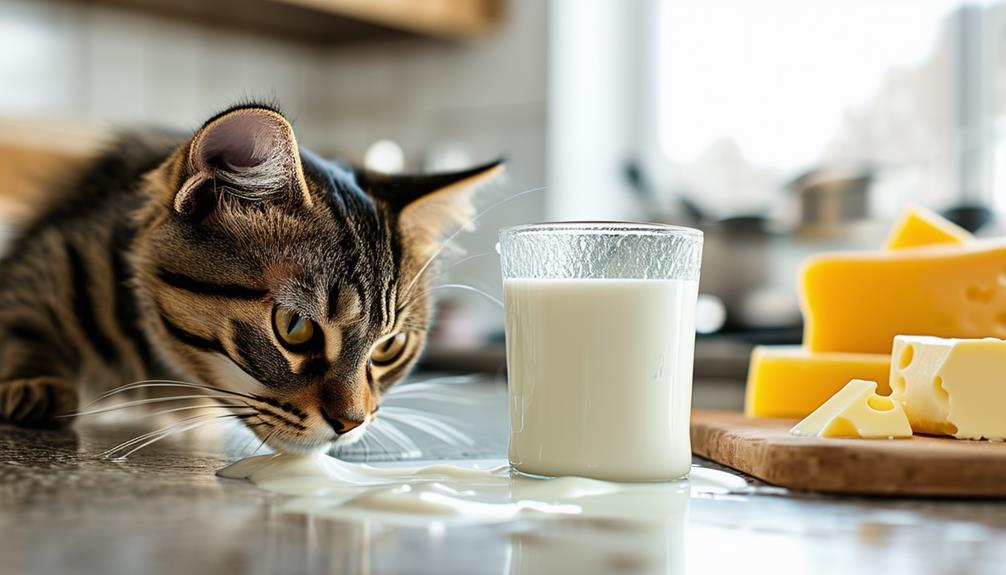
Many cats are lactose intolerant, making dairy products a common cause of digestive problems.
When cats consume milk, cheese, or other dairy items, they often experience symptoms such as diarrhea, vomiting, and stomach cramps.
This happens because most adult cats lack the enzyme lactase, which is necessary to properly digest lactose found in dairy.
While it may be tempting to share a saucer of milk or a piece of cheese with your
Opt for specially formulated
Ensuring your
Raw Eggs
Consuming raw eggs poses significant health risks to cats due to the potential presence of harmful bacteria like Salmonella or E. coli.
These pathogens can cause severe gastrointestinal distress, leading to symptoms such as vomiting, diarrhea, and lethargy.
Additionally, raw eggs contain avidin, a protein that binds biotin (a B vitamin) and hinders its absorption, potentially causing a biotin deficiency over time.
This deficiency can affect your
While the idea of providing a natural, protein-rich food might seem appealing, the risks far outweigh any potential benefits.
For your
Raw Meat
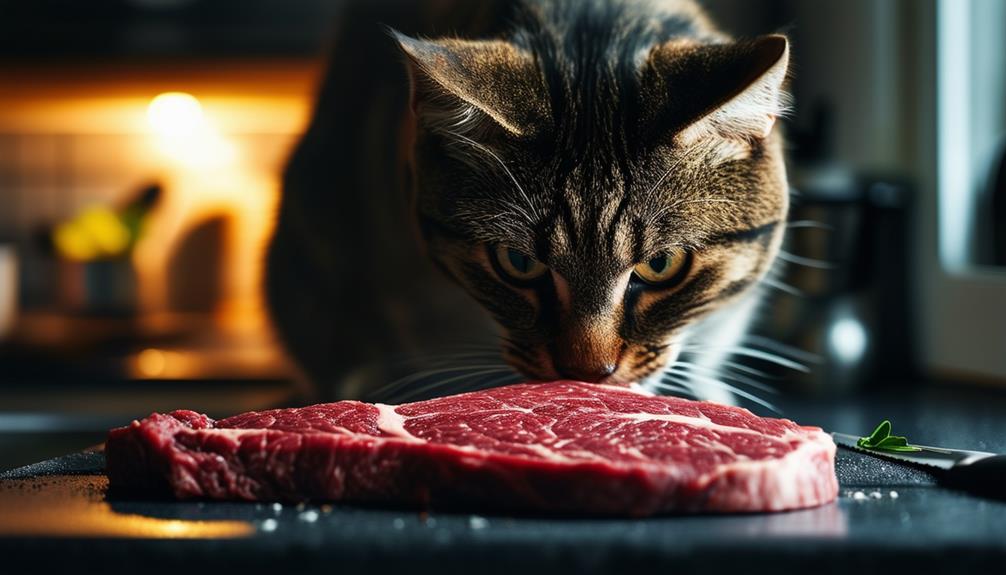
While raw eggs pose significant health risks to cats, raw meat can be equally harmful due to potential contamination with pathogens that cause gastrointestinal distress and dehydration.
Raw meat often harbors bacteria such as Salmonella and E. coli, which can lead to severe digestive issues, including vomiting and diarrhea.
Additionally, these pathogens can compromise a
It’s crucial to recognize that cats, despite being obligate carnivores, require their meat to be properly cooked to eliminate these dangers.
By avoiding raw meat, you not only protect your
Always prioritize food safety to keep your
Excessive Salt
Excessive salt intake can lead to severe health issues in cats, including vomiting, seizures, and potentially fatal outcomes.
Cats are particularly sensitive to sodium imbalances, which can disrupt their neural pathways and lead to life-threatening conditions.
Common foods high in salt, such as chips, pretzels, and certain processed meats, should be kept well out of your
Even small amounts can cause significant harm, given their smaller body weight and unique metabolism.
Symptoms of salt poisoning include excessive thirst, urination, lethargy, and loss of appetite.
If you suspect your
Always monitor your
Onions and Garlic
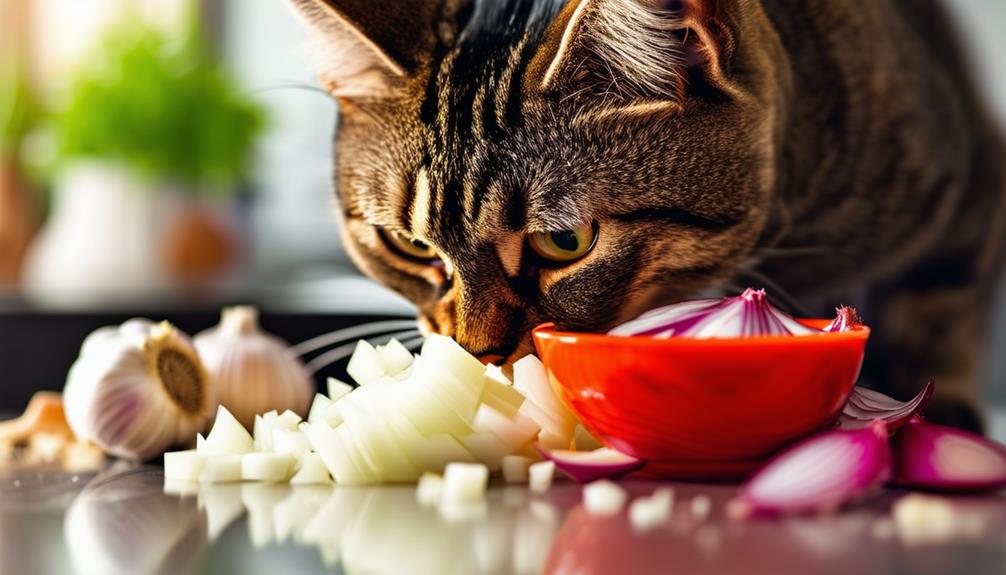
Onions and garlic pose significant health risks to cats due to their toxic compounds.
These members of the Allium family contain substances that can cause hemolytic anemia, a condition where red blood cells are destroyed faster than they can be produced.
Even small amounts can lead to symptoms such as vomiting, diarrhea, lethargy, and rapid breathing.
Cooking does not diminish their toxicity, making it important to keep all forms—raw, cooked, or powdered—away from your
Be vigilant with ingredient lists in foods you might share with your
Xylitol
Xylitol, a common sugar substitute found in many sugar-free products, poses a serious threat to cats’ health.
Often present in items like gum, candy, and baked goods, xylitol can cause a rapid release of insulin in cats, leading to a dangerous drop in blood sugar levels.
Symptoms of xylitol poisoning include vomiting, lethargy, and loss of coordination, which can escalate to seizures and liver failure if left untreated. Even small amounts can be toxic, making it important to keep such products out of your
If you suspect your
Conclusion
In essence, awareness of toxic foods for cats is vital to prevent serious health issues.
Particularly, grapes and raisins can cause acute kidney failure, with even small amounts posing significant risks.
Avoiding harmful substances such as cooked bones, chocolate, bread dough, onions, garlic, and xylitol is indispensable for a
Prioritizing a
Maintaining vigilance in dietary choices can greatly enhance the quality of life for
